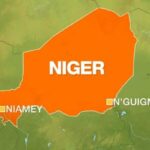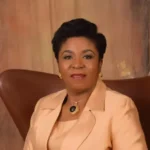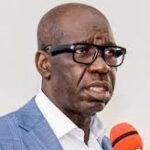Stakeholders and experts in the aviation industry have set agenda for the incoming administration of Asiwaju Bola Ahmed Tinubu, tasking it to immediately constitute boards of aviation agencies.
They said the non-composition of boards of the agencies in the aviation industry has created an atmosphere of one-man governance without corporate governance in place.
Daily Trust on Sunday reports that the six agencies in the industry have been governed without the statutory boards throughout the eight years of the present administration. Several appeals, calls and protests by stakeholders have fallen on deaf ears.
The agencies include the Nigeria Civil Aviation Authority (NCAA), the Federal Airports Authority of Nigeria (FAAN), the Nigerian Airspace Management Agency (NAMA), the Nigeria Meteorological Agency (NIMET), the Nigerian College of Aviation Technology (NCAT) Zaria and the Nigeria Safety Investigation Bureau (NSIB) formerly Accident Investigation Bureau.
- First week of hearing: Motions, objections, withdrawals shape presidential tribunal
- UNICAL girls target success at world universities games in China
Stakeholders say failure to appoint governing boards as stipulated by the Acts establishing the organisations is not good for the smooth running of the agencies.
President of Aviation Roundtable, Dr. Gbenga Olowo, urged the incoming government to look into this and remedy the situation.
According to him, failure to appoint boards of agencies “portends absolute non-observance of corporate governance.”
“Processes are planned and executed in secrecy, autocratic management gives room for speculation and suspicions with incessant industrial unrest as it is lately.
“The industry has witnessed inappropriate engagement of unskilled men and even politicians into strategic professional offices to the detriment of skilled and qualified candidates within and outside the system.”
Olowo also urged the incoming government to address the problem of trapped funds belonging to foreign airlines now in the region of over $730m, saying the situation portrays the country as not respecting agreements. He said the travel industry is suffering because of it.
Olowo recalled that during the early 1990s, airlines like Swiss Air, Scandinavia, Alitalia and Varig Brazilian Airlines, among others exited Nigeria on account of trapped funds, saying this resulted in massive job losses, the collapse of industries, the collapse of trade and commerce, and strained relations among the operating nations such as cumbersome visa restriction regime.
His words, “Today, the foreign airlines are using all forms of strategy to withdraw their inventories and seats out of Nigeria’s Point of Sale (POS) and may eventually quit as demonstrated with the on and off flight operations of once flourishing Emirates Airlines.
“Nigeria’s national carrier is stillbirth in eight years and surrounded by legal tussles with endless controversy. Neither do we have sufficiently strong Nigerian carriers that can provide the much-needed services by these foreign airlines.”
“Nigeria’s flight bookings in April alone collapsed by approximately 50 percent and travel agents are losing tonnes of business and huge revenue to the government through payment of Ticket Sales Charge (TSC), Passenger Service Charge (PSC) and Cargo Service Charge (CSC) on tickets not sold. Passengers are faced with ever-escalating air ticket fares,” he added.
The aviation professional stated that the idea of national carrier is no longer fashionable anywhere in the world, advising that the country should be talking about having three strong flag carriers that could compete with the foreign airlines of this world.
“No one single carrier can meet the travel needs of Nigeria today. We must be intentional and deliberate to birth two, three flag carriers with very clear mandates.
“This remains the necessary and sufficient condition for reciprocity and efficient service delivery.”
Principal Partner Avaero Capital, Sindy Foster, said, “There are a few immediate challenges which require prompt actions by the incoming government.”
The challenges she listed include industrial disputes; delays caused by VIP movement & bird strikes; Blocked funds; Aviation fuel availability and cost; Optimisation of Lagos Airport runways; Sunset airport operating hours.
She added, “We also need a full audit of what has been spent and in what. All agencies need audits. All governing boards need to be installed to avoid a repeat of the one-man band style of leadership and decision making we have seen of late.”
Also speaking, Aviation analyst, Group Capt. John Ojikutu rtd, called for national flag carriers and not a national carrier as well as the concession of all the airports and not the international airports alone with “a unified but autonomous airport security consisting the security agencies in the aviation security defence layers and not airport security force.”
“Government must not be involved in commercial aviation but the regulations oversight and enforcement. Government can provide intervention funds for aviation development but the funds must be recoverable, if possible, with interest.
“Government must provide security fences to enhance the airports’ Perimeter Fences to fully comply with the provision of ICAO Annex17.”
“We already have regulations from the NCAA, then airport management from FAAN,” he said.
Chairman of Westlink Airlines, Capt. Ibrahim Mshelia, said the incoming government should take advantage of the various blueprints on ground to implement policies and programmes that would change the fortune of aviation.

 Join Daily Trust WhatsApp Community For Quick Access To News and Happenings Around You.
Join Daily Trust WhatsApp Community For Quick Access To News and Happenings Around You.


